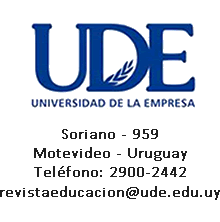Phenomenography as a methodological alternative in the Social Sciences and Humanities
DOI:
https://doi.org/10.48163/rseus.2022.10180-95Keywords:
fenomenografia, metodologia, Ciências Sociais, pesquisaAbstract
This article seeks to describe in detail phenomenography as an alternative methodology applied to research in Social and Humanistic Sciences. The article describes the creation of this method by Ference Marton in the late 1970s and its development and structuring based on authors such as Marton himself, Booth, Halsselgreen and Bowden. The phases that make up the phenomenographic method are also presented, namely: selection of participants, conducting interviews, transcription of interviews, data analysis (selection of quotes, interpretation, formation of descriptive categories) and organization of the results space. This research was developed within the framework of a bibliographic design, documentary type, at a descriptive level. Phenomenography has proven to be consistently adequate as a methodology in qualitative research, either because of the epistemological support that characterizes it, or because of the specificity of the phases that compose it, in which both the subjects involved and the way in which they are Information is obtained and taken into account and processed within a qualitative perspective. Given the social changes that have been experienced recently, such as globalization, information and communications technologies and the diversity of thought that characterizes different social groups, it is increasingly necessary to approach reality from the differences to reach bases that allow humanity to continue evolving. . For which Phenomenography becomes the most suitable alternative.
Downloads
Additional Files
Published
How to Cite
Issue
Section
License
Copyright (c) 2022 Luis Gustavo Nunes, Marymili Segura Vera

This work is licensed under a Creative Commons Attribution 4.0 International License.
Política para revistas de acceso abierto
Los autores/as que publiquen en esta revista aceptan las siguientes condiciones:
a. Los autores/as conservan los derechos de autor y ceden a la revista el derecho de la primera publicación, con el trabajo registrado con la licencia de atribución de Creative Commons (CC-BY), que permite a terceros utilizar lo publicado siempre que mencionen la autoría del trabajo y a la primera publicación en esta revista.
b. Los autores/as pueden realizar otros acuerdos contractuales independientes y adicionales para la distribución no exclusiva de la versión del artículo publicado en esta revista (p. ej., incluirlo en un repositorio institucional o publicarlo en un libro) siempre que indiquen claramente que el trabajo se publicó por primera vez en esta revista.






















